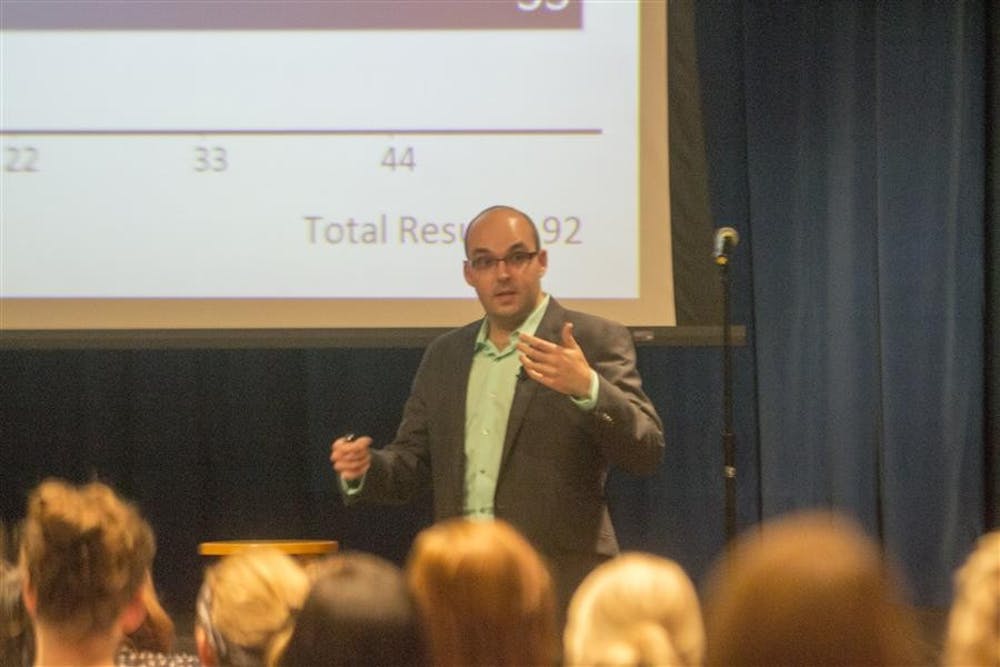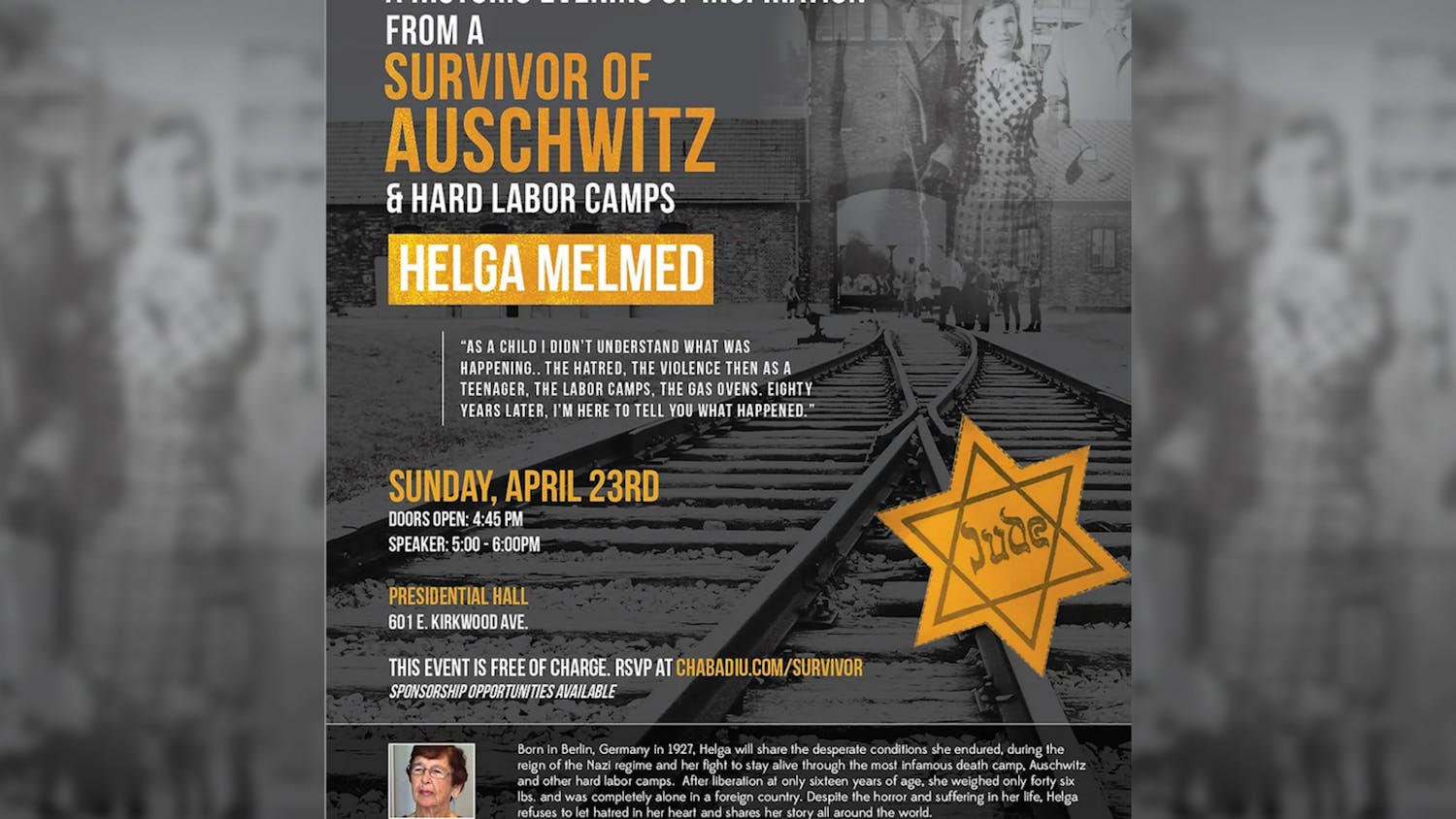For contemporary college students living through what some call the hook-up era, sometimes, sex travels beyond the bedroom and into lecture halls.
Students attended Monday’s “Sex Ed: A Real Conversation about Sexual Hookups in College” event in the Whittenberger Auditorium in the IMU to have an honest discussion about hook-up culture, both nationally and at IU.
Culture of Care, an IU Student Association-led initiative to “shift the culture of IU ... to friendly and safe,” sponsored the event, which had two expert speakers.
Dr. Justin Garcia, an assistant gender studies professor at IU and research scientist at the Kinsey Institute, and Dr. Kristen Jozkowski, assistant professor of community health at University of Arkansas, led the discussion.
Three student panelists were also present to discuss and stress the importance of building positive sexual relationships with one another.
Garcia said across the nation, 65 to 68 percent of college students engage in uncommitted, casual “hookups.”
He also said America’s dating culture has radically changed over the last several decades, as oral sex is becoming more casual, and kissing is “too intimate.”
“What appears to be happening is that dating hasn’t died, it’s just changed,” Garcia said. “Hookups are serving as ways of getting to know people and starting romantic relationships.”
Garcia said hookups also appear to be happening more frequently.
“That also suggests that it happens due to our culture,” he said. “They’re happening, but they’re not happening alongside relationships.”
Although the main reason for engaging in hookups was for pleasure, a study to which Garcia contributed found that for both men and women, about 50 percent of people hook up because they’re “looking for love.”
Garcia and Jozkowski both said that was fine — as long as sexual partners communicate consent effectively and in a safe manner.
Jozkowski discussed the four different ways to give consent: direct, verbal, nonverbal and non-direct.
She also noted that although women and men differ in how they indicate consent, it’s still important to address the subject in order to have a positive and pleasurable experience for both parties.
“I’m not here to say not to have sex ... that’s not realistic,” Jozkowski says. “(People) need to be comfortable with what they’re doing ... consent ties into that.”
After the presentation, students were able to anonymously text their questions during the open discussion time.
Questions centered around how to communicate effectively and other social questions, such as “Can men be raped?”, “What are good ways to ask for consent without killing the mood?” and “What are good ways to say no without making the guy angry?”
In response to “Why is there more stigma associated with women who hook up more than men?”, one student panelist suggested women are seen as more pure, and that if they have sex, they’re just giving what they have away.
Kristy Dorsey, a freshman and nursing major, said she heard about the event through Twitter.
Dorsey said she thought the discussion topic was interesting.
“I came because I was curious on everyone else’s outlook on hooking up,” Dorsey said.
Garcia said he hoped students would begin to think critically about the role of romantic and sexual relationships in their lives.
“We want people to be having lots of consensual sex with lots of orgasms,” Jozkowski said.
Expert panel discusses positive sex

Get stories like this in your inbox
Subscribe




